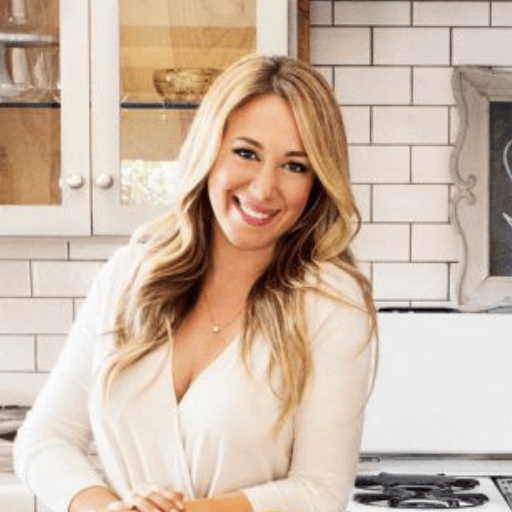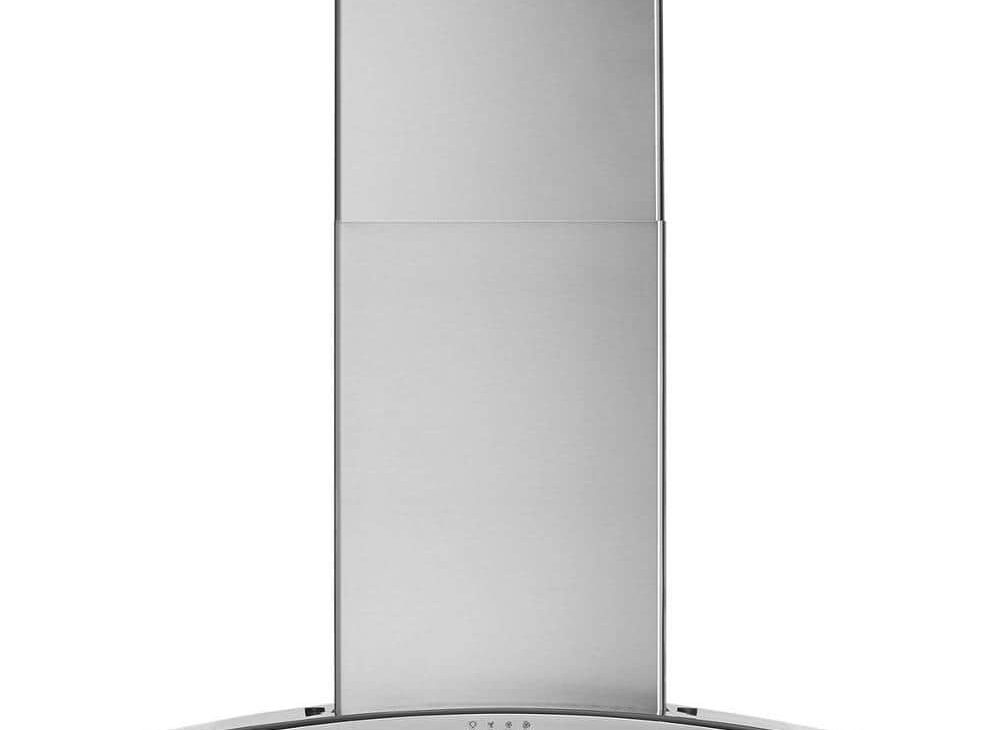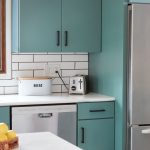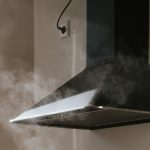Your range hood may be loud due to a worn-out motor or a loose fan blade.
Understanding The Key Factors Affecting Range Hood Noise
Range hoods are essential kitchen appliances that help to keep our kitchens clean and free from odors. However, many homeowners often find themselves asking, “why is my range hood so loud? ” The noise produced by range hoods can be a nuisance, especially during meal preparation and family gatherings.
In this section, we will explore the key factors affecting range hood noise and learn why noise reduction is important.
Factors Contributing To Range Hood Noise:
- Airflow: One of the primary factors that contribute to range hood noise is the airflow. The fan inside the hood draws in air to eliminate smoke and odors, but as the air passes through the ducts and filters, it can create noise due to the friction and turbulence.
- Motor: The motor is responsible for driving the fan and can significantly impact the noise level produced by the range hood. Motor design, quality, and power can all affect the noise output, with more powerful motors often leading to louder operation.
- Ductwork: Improperly designed or installed ductwork can contribute to noise in range hoods. If the ducts are too small or have sharp turns, the air passing through them can create additional noise. Additionally, loose or disconnected ducts can also cause rattling or vibrating noises.
- Fan speed settings: The noise level of a range hood can vary depending on the fan speed settings. Higher speed settings generally produce more noise due to the increased airflow, while lower settings are usually quieter.
Types Of Noise Produced By Range Hoods:
- Airflow noise: As mentioned earlier, the airflow itself can create noise as it moves through the ducts, filters, and fan blades. This noise can range from a gentle whir to a loud whooshing sound, depending on the design and condition of the range hood.
- Vibrations and rattling: Range hoods that are not properly installed or maintained may produce vibrations or rattling noises. Loose parts, such as the blower wheel or motor, can vibrate against the housing, resulting in unwanted noise.
- Resonance and echo: In some cases, the design of the range hood or ductwork can cause resonance or echoing of the noise, amplifying the sound produced by the fan. This can make the range hood appear louder than it actually is.
Importance Of Noise Reduction In A Range Hood:
- Improved kitchen atmosphere: By reducing the noise level of your range hood, you can create a more enjoyable and peaceful cooking environment. This is especially important when you have an open kitchen layout or when entertaining guests.
- Better communication: A quieter range hood allows for better communication in the kitchen. You can easily hold conversations, hear timers, and enjoy background music without the annoyance of excessive noise.
- Increased comfort: Loud range hoods can be a source of stress and discomfort, especially for individuals with noise sensitivity or hearing impairments. By reducing noise, you can enhance overall comfort in your kitchen space.
Understanding the key factors affecting range hood noise can help you make informed decisions when selecting a new range hood or troubleshooting noise issues with your existing one. Consider factors such as airflow, motor quality, ductwork design, and fan speed settings to minimize noise and create a more pleasant cooking experience in your kitchen.
Common Causes Of Loud Range Hood Noise
Why Is My Range Hood So Loud
Fan And Motor Issues
- A noisy fan or motor is one of the common causes of loud range hood noise. There are a few key points to consider when dealing with this issue:
- Fan imbalance: An unbalanced fan can create excessive noise. It is important to ensure that the fan is properly installed and aligned.
- Worn-out motor: Over time, the motor in your range hood can wear out, resulting in a louder operation. If you hear a grinding or squeaking noise, it is likely that the motor needs to be replaced.
- Fan blade obstruction: Debris or grease buildup on the fan blades can lead to increased noise. Regular cleaning and maintenance can help prevent this issue.
Ventilation System Blockages
- Another possible cause of loud range hood noise is blockages in the ventilation system. Consider the following points:
- Grease buildup: Over time, grease can accumulate inside the ventilation system, leading to restricted airflow. This can result in increased noise levels as the system has to work harder to remove smoke and odors. Regular cleaning and maintenance are essential to prevent blockages.
- Ductwork obstructions: Objects or debris can obstruct the ductwork, limiting the airflow and causing the range hood to become noisy. Checking and clearing any obstructions in the ductwork should resolve this issue.
Improper Installation
- Improper installation can often contribute to a loud range hood noise. Take note of the following aspects:
- Loose parts: If the range hood is not securely installed, it may rattle or vibrate, resulting in increased noise. Ensuring that all components are tightened properly can help eliminate this issue.
- Inadequate insulation: Poorly insulated ductwork can transfer noise from the range hood motor, making it louder. Proper insulation of the ductwork can help reduce noise levels.
Maintenance And Cleaning Requirements
- Neglecting regular maintenance and cleaning can also lead to a noisy range hood. Here are a few key points to consider:
- Filter cleaning: Clogged or dirty filters restrict airflow, causing the fan to work harder and produce more noise. Regularly cleaning or replacing filters can help maintain an optimal level of noise.
- General cleaning: Grease and dirt buildup inside the range hood can increase noise levels. Proper cleaning of the interior and exterior surfaces can help prevent this issue.
By addressing these common causes, you can greatly reduce the noise levels of your range hood and enjoy a quieter and more efficient cooking experience. Remember to regularly inspect, clean, and maintain your range hood to ensure its optimal performance and longevity.
Tips For Reducing Range Hood Noise And Enhancing Silence
Range hood noise can be a major frustration for homeowners. Whether it’s a constant hum, a loud roar, or a rattling sound, a noisy range hood can disrupt the peaceful atmosphere in your kitchen. You may find yourself wondering why your range hood is so loud and what you can do to make it quieter.
In this blog post, we will explore some tips for reducing range hood noise and enhancing silence in your kitchen. So, let’s dive in!
Choosing A Quiet Range Hood Model
When selecting a new range hood or replacing your existing one, consider the noise level as an important factor. Look for range hood models that are specifically designed to be quiet. Here are some key points to keep in mind:
- Opt for range hoods with low sone ratings. The lower the sone rating, the quieter the range hood will be.
- Choose range hood models with insulated motor housings. This helps to reduce noise by trapping sound and preventing it from escaping.
- Look for range hoods with multiple fan speeds. Having the ability to adjust the fan speed can help you find the optimal balance between ventilation and noise.
Proper Installation Techniques For Noise Reduction
Improper installation can contribute to range hood noise. To minimize noise levels during installation, consider the following points:
- Ensure that the range hood is properly aligned and securely mounted. Loose screws or brackets can cause vibrations and rattling noises.
- Use flexible ductwork instead of rigid ductwork. Flexible ducts can help absorb vibrations and reduce noise transmission.
- Position the range hood at an appropriate distance from the cooktop. A recommended distance is typically 24 to 30 inches for optimal performance and reduced noise.
Maintenance And Cleaning Best Practices
Regular maintenance and cleaning can go a long way in reducing range hood noise. Here’s what you should do:
- Clean the range hood filters regularly. Dirty filters can inhibit airflow, causing the motor to work harder and create more noise.
- Check for any loose or worn-out parts and tighten or replace them as needed.
- Ensure that the fan blades are clean and free from debris. Dust and grease buildup on the blades can create unbalanced airflow and increase noise levels.
Additional Strategies For Noise Reduction
In addition to the above tips, there are a few extra strategies you can employ to further reduce range hood noise:
- Install sound-dampening material around the range hood. This can help absorb vibrations and reduce noise transmission to the surrounding area.
- Consider using a range hood with a remote blower. Remote blowers are typically located outside of the kitchen and can significantly reduce noise levels inside.
- Use a noise-reducing duct silencer or a muffler to further minimize sound transmission through the ductwork.
By following these tips, you can effectively reduce range hood noise and enjoy a quieter kitchen environment. Choose a quiet range hood model, ensure proper installation, regularly maintain and clean your range hood, and consider additional noise reduction strategies. With a quieter range hood, you can cook and entertain in peace, without the unwanted distraction of a noisy appliance.
Exploring The Benefits Of A Silent Range Hood
Are you tired of the loud and disruptive noise coming from your range hood whenever you cook? If so, you’re not alone. Many homeowners find themselves wondering why their range hoods are so loud and if there is a solution to this common problem.
In this blog post, we’ll explore the benefits of a silent range hood, discussing how it can enhance your cooking experience and ambiance, improve air quality in the kitchen, minimize disturbance and noise pollution, and increase energy efficiency.
Enhanced Cooking Experience And Ambiance
- Enjoy a peaceful and serene cooking environment with a silent range hood.
- No more loud and distracting noises to disrupt your concentration while preparing meals.
- Create a more inviting and pleasant atmosphere in your kitchen, perfect for entertaining guests or enjoying quality family time.
Improved Air Quality In The Kitchen
- Silent range hoods are equipped with powerful ventilation systems that effectively remove smoke, steam, and odors from your kitchen.
- Say goodbye to lingering cooking smells and hello to fresh and clean air.
- Improved air quality ensures a healthier living space for you and your family.
Minimized Disturbance And Noise Pollution
- Silent range hoods operate quietly, allowing you to carry on conversations or watch tv without interruptions.
- No more shouting to be heard over the noise of your range hood.
- Reduce noise pollution in your home and create a more peaceful environment for everyone.
Increased Energy Efficiency
- Silent range hoods are designed with energy-saving features, helping you save on utility bills.
- Efficient ventilation systems use less power while still effectively removing smoke and odors from your kitchen.
- Enjoy the benefits of a quieter range hood without sacrificing performance or energy efficiency.
Say goodbye to the annoying noise of your old range hood and embrace the benefits of a silent range hood. Not only will it enhance your cooking experience and ambiance, but it will also improve air quality in your kitchen, minimize disturbance and noise pollution, and increase energy efficiency.
Upgrade your kitchen to a more tranquil and enjoyable space with a silent range hood today.
Best Practices For Maintaining A Quiet Range Hood
If you’ve ever found yourself wondering why your range hood is making so much noise, you’re not alone. A loud range hood can be incredibly frustrating, disrupting the peaceful ambiance of your kitchen and making it difficult to focus on cooking.
Luckily, there are a few best practices you can follow to help maintain a quiet range hood and keep your kitchen environment serene. By regularly cleaning and replacing filters, practicing proper use and care, and addressing potential issues promptly, you can enjoy a quieter and more enjoyable cooking experience.
Regular Cleaning And Filter Replacement
- Maintain a regular cleaning schedule to prevent the buildup of grease and debris.
- Use a mild detergent or degreaser to effectively clean both the exterior and interior surfaces of the range hood.
- Pay special attention to the fan blades and vents, as these are often the main culprits behind loud noises.
- Remove and clean the filters regularly, as clogged filters can restrict airflow and increase noise levels.
- If your range hood has a charcoal filter, replace it as recommended by the manufacturer to ensure optimal performance.
Proper Use And Care Guidelines
- Avoid using high fan speeds unnecessarily, as this can increase noise levels.
- Use the appropriate fan speed for the cooking task at hand. For example, use lower speeds for simmering and higher speeds for frying or boiling.
- Make sure the range hood is properly installed and mounted securely to minimize vibrations and rattling.
- Keep the range hood and surrounding area free from obstructions to allow for proper airflow and reduce noise.
- Consider using noise-reducing accessories, such as sound-absorbing pads or baffles, to further dampen noise levels.
Identifying And Addressing Potential Issues Promptly
- Pay attention to any sudden changes in noise levels or unusual sounds coming from the range hood.
- Check for loose or damaged components, such as fan blades, motor mounts, or ductwork, and tighten or repair them as needed.
- If the noise persists or worsens despite regular cleaning and maintenance, it may be necessary to consult a professional technician for further evaluation and repairs.
By following these best practices for maintaining a quiet range hood, you can ensure a more peaceful and enjoyable cooking experience in your kitchen. Keep in mind that every range hood model may have its own unique maintenance requirements, so always refer to the manufacturer’s guidelines for specific care instructions.
With regular cleaning, proper use, and prompt attention to potential issues, you can minimize noise and create a tranquil cooking space.
Expert Recommendations For Quieter Range Hoods
Are you tired of the constant noise coming from your range hood? Does it feel like you can never have a quiet, peaceful cooking experience? If so, you’re not alone. Many homeowners struggle with loud range hoods that disrupt the tranquility of their kitchens.
In this blog post, we will explore why range hoods can be so loud and provide expert recommendations for quieter range hood options. Say goodbye to noisy cooking sessions and hello to a more serene kitchen environment.
Top Recommended Low-Noise Range Hood Brands
- Bosch: Bosch range hoods are renowned for their quiet operation. With advanced sound insulation technology, these hoods ensure a noise-free cooking experience.
- Zephyr: Zephyr offers a range of low-noise range hoods that combine style and functionality. Their hoods are designed to minimize noise without compromising on performance.
- Broan-nutone: Broan-nutone offers a wide selection of range hoods that focus on noise reduction. Their innovative designs incorporate features like improved motor insulation and sound-absorbing materials.
Special Features To Look For In A Quiet Range Hood
- Noise level ratings: When choosing a range hood, pay attention to the noise level rating in decibels (db). Opt for models that have a lower noise level to ensure quieter operation.
- Multiple fan speeds: Look for range hoods that offer multiple fan speed options. This allows you to adjust the fan’s intensity based on your cooking needs, reducing noise when necessary.
- Sound insulation: Range hoods with effective sound insulation help to minimize noise transmission, creating a quieter kitchen environment.
- Variable airflow control: Some range hoods offer variable airflow control, allowing you to adjust the fan speed to different levels depending on the cooking requirements. This can help in reducing noise without compromising ventilation efficiency.
Comparative Analysis Of Different Range Hood Models For Noise Level
- Model a: Noise level – 60 db. This model offers powerful ventilation but emits a higher noise level compared to other options. Not recommended for those seeking a quieter range hood.
- Model b: Noise level – 45 db. This model strikes a balance between performance and noise reduction. It offers efficient ventilation while minimizing disruptive noise.
- Model c: Noise level – 55 db. Although quieter than model a, this range hood still produces a noticeable level of noise. Consider other models if a quieter environment is desired.
Loud range hoods can be a nuisance while trying to cook in peace. However, by choosing a low-noise range hood from top brands like bosch, zephyr, or broan-nutone and looking for features such as noise level ratings, multiple fan speeds, sound insulation, and variable airflow control, you can enjoy a quieter kitchen environment.
Consider the comparative analysis of different range hood models for noise level before making your final decision. Say goodbye to the clattering noise and savor the serenity of your cooking space.
Faqs: Addressing Common Concerns About Range Hood Noise
One of the common concerns that homeowners have about their range hoods is the noise level. If you find yourself asking, “why is my range hood so loud? ” You’re not alone. Range hood noise can be bothersome and disruptive, especially when you’re trying to enjoy a quiet meal or have a conversation in the kitchen.
Thankfully, there are answers to your questions and solutions to address this common issue. In this section, we’ll address some frequently asked questions (faqs) about range hood noise and provide you with the information you need to tackle this problem.
So, let’s dive right in!
Can Range Hood Noise Be Completely Eliminated?
While it may not be possible to eliminate all noise from your range hood entirely, there are steps you can take to minimize the noise level. Understanding the factors that contribute to the noise can help you make informed decisions when it comes to choosing a range hood and reducing the overall sound it produces.
Here are some key points to keep in mind:
- Range hood noise can be caused by various factors, including the motor, fan speed, and airflow.
- The noise level can also depend on the quality and design of the range hood.
- Look for range hoods with noise reduction features such as insulated ductwork, low-noise motors, and sound-absorbing materials.
- Installing the range hood properly and ensuring a tight seal can help reduce vibration and noise.
Is Noise Level The Only Factor To Consider When Purchasing A Range Hood?
When purchasing a range hood, noise level is an important consideration, but it’s not the only factor to keep in mind. While a quiet range hood is desirable, you should also consider other aspects to ensure that the range hood meets your cooking needs.
Here are a few factors to consider:
- Extraction power: The range hood should have sufficient suction power to effectively remove smoke, steam, and odors from your kitchen.
- Size and coverage: The range hood should match the size of your cooktop or range to effectively capture and exhaust cooking byproducts.
- Filtration system: Choose a range hood with efficient filters that can trap grease and other airborne particles.
- Design and style: Consider the design and style of the range hood to ensure it complements your kitchen aesthetics.
Remember, finding the right balance between noise level and performance is key when selecting a range hood that best suits your needs.
Can I Fix A Loud Range Hood On My Own, Or Do I Need Professional Help?
Depending on the cause and severity of the noise, you may be able to fix a loud range hood on your own. However, in some cases, it’s best to seek professional help to ensure proper diagnosis and repair.
Consider the following points:
- Diy troubleshooting: You can start by checking if the range hood is properly installed, as loose parts or incorrect installation can contribute to noise. Inspect the ductwork for any blockages or leaks that may cause excess noise.
- Regular maintenance: Cleaning and maintaining your range hood regularly can help reduce noise caused by accumulated grease and debris.
- Professional assistance: If the noise persists or you’re unsure about the cause, it’s advisable to consult a professional technician. They can identify and fix any underlying issues, such as motor problems or faulty components, to ensure optimal performance and noise reduction.
Remember, safety should always be the top priority. If you’re uncomfortable or uncertain about performing any repairs, it’s best to leave it to the experts.
Understanding common concerns about range hood noise and knowing how to address them can make your kitchen a more pleasant and enjoyable space. By taking the necessary steps, you can minimize noise and create a quieter and more efficient cooking environment.
Frequently Asked Questions On Why Is My Range Hood So Loud
Why Is My Range Hood Making So Much Noise?
There can be several reasons for a loud range hood. It could be due to a loose or damaged fan blade, motor issues, a clogged air vent, or improper installation. Regular cleaning, checking for loose parts, and proper maintenance can help reduce the noise.
How Can I Reduce The Noise From My Range Hood?
To minimize the noise from your range hood, try tightening any loose screws, cleaning or replacing clogged filters, ensuring proper installation, and checking for any obstructions in the ventilation system. If the noise persists, it might be best to contact a professional technician for further assistance.
Is It Normal For Range Hoods To Be Loud?
While some level of noise is expected from a range hood, excessively loud noise is not normal. A properly functioning range hood should operate quietly. If you notice that your range hood is exceptionally loud, it could be an indication of a problem that needs to be addressed.
Can An Old Range Hood Become Louder Over Time?
Yes, an old range hood can become louder over time due to wear and tear. Components such as the fan, motor, or bearings may start to deteriorate or become less efficient, resulting in increased noise. Regular maintenance and replacing worn-out parts can help mitigate this issue.
Is It Safe To Use A Loud Range Hood?
While a loud range hood might not pose an immediate safety threat, it can be inconvenient and disruptive. Moreover, excessive noise could indicate an underlying mechanical issue that could worsen over time. Therefore, it is advisable to address the noise issue to ensure optimal performance and minimize the risk of further complications.
Conclusion
If your range hood is making an excessive noise, it is important to address the issue promptly. A loud range hood can be a nuisance and potentially indicate an underlying problem. One possible reason for the noise is a build-up of grease and dirt in the fan or motor.
Regular cleaning and maintenance can help alleviate this issue. Another reason could be that the fan or motor is malfunctioning and needs to be repaired or replaced. Additionally, installing sound insulation or purchasing a quieter range hood can significantly reduce the noise.
As a homeowner, it is crucial to pay attention to these potential problems and take proactive measures to resolve them. By doing so, you can enjoy a peaceful and quiet kitchen environment while ensuring the optimal performance of your range hood.

Freda is a passionate foodie and kitchen gadget enthusiast. With over 10 years of experience in the culinary industry, Freda brings her expertise in testing and reviewing kitchen gadgets.





